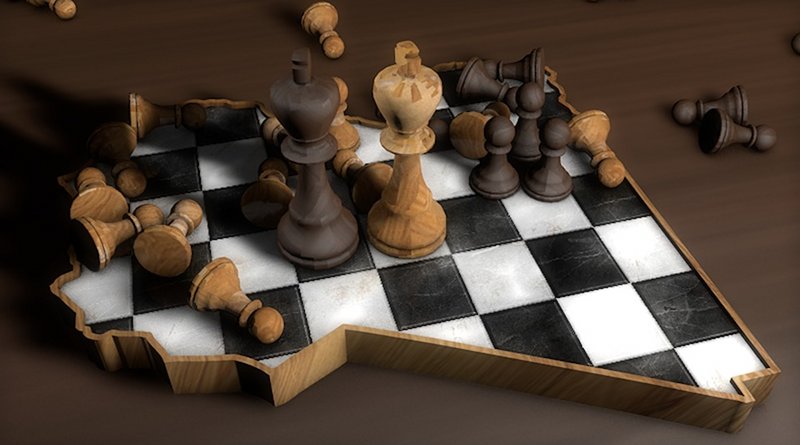The Fight For Libya
By Paul Woodward - War in Context
As a debate continues in Washington and other Western capitals on the necessity, advisability or feasibility of some kind of foreign intervention in Libya, Britain has demonstrated why Libyans of any persuasion have good reason to question the intentions of outsiders.
After a British “diplomatic team” made up of six SAS special forces soldiers and two MI6 intelligence officers was captured four days ago, Libyan revolutionary commanders reasonably asked how they were supposed to know that their captives represented the British government and were not in fact a group of Israeli spies.
According to Guardian sources, the British intelligence and special forces unit were caught near the al-Khadra Farm Company, 18 miles (30km) south-west of Benghazi. A senior member of Benghazi’s revolutionary council said: “They were carrying espionage equipment, reconnaissance equipment, multiple passports and weapons. This is no way to conduct yourself during an uprising.
“Gaddafi is bringing in thousands of mercenaries to kill us, most are using foreign passports and how do we know who these people are?
“They say they’re British nationals and some of the passports they have are British. But the Israelis used British passports to kill that man in Dubai last year.”
The Guardian reported:
The six SAS troops and two MI6 officers were seized by Libyan rebels in the eastern part of the country after arriving by helicopter four days ago. They left on HMS Cumberland, the frigate that had docked in Benghazi to evacuate British and other EU nationals as Libya lurched deeper into conflict. The diplomatic team’s departure marked a perfunctory end to a bizarre and botched venture.
“I can confirm that a small British diplomatic team has been in Benghazi,” said William Hague, the foreign secretary. “The team went to Libya to initiate contacts with the opposition. They experienced difficulties, which have now been satisfactorily resolved. They have now left Libya.”
Audio of a telephone conversation between the UK’s ambassador to Libya, Richard Northern, and a senior rebel leader was later leaked.
Northern suggested in the call that the SAS team had been detained due to a misunderstanding.
The rebel leader responded: “They made a big mistake, coming with a helicopter in an open area.”
Northern said: “I didn’t know how they were coming.”
Despite the failure of the mission, Hague indicated that Britain would continue to try to make contact with the opposition.
“We intend, in consultation with the opposition, to send a further team to strengthen our dialogue in due course,” he said. “This diplomatic effort is part of the UK’s wider work on Libya, including our ongoing humanitarian support. We continue to press for Gaddafi to step down and we will work with the international community to support the legitimate ambitions of the Libyan people.”
The Financial Times reports:
The oppositions’ volunteer forces have shown a willingness to go into battle, but lack the capacity to launch a big offensive. The fighting over the oil towns of Brega and Ras Lanuf has been over in hours and it has not been clear if regime forces tactically withdrew or were defeated. Col. Gaddafi’s forces have air superiority and are better equipped, but appear to be concentrated on regaining control of the western cities of Zawiya and Misurata, and there has been no major battle for cities in the east. The opposition has ruled out any negotiations and know that if they did give up their fight they would probably be the victims of a backlash from the regime.
What started as a popular uprising increasingly bears the hallmarks of a civil war and a country split between the opposition-controlled east and the regime’s strongholds of Tripoli, Sirte and Sabha in the south. Army, air force and navy units have defected and increasing numbers of civilians are donning looted military uniforms and taking up weapons to fight Col Gaddafi’s forces.
The opposition says that if the international community imposes a no-fly zone and launches air strikes against regime forces’ strongholds, they can win although they have repeatedly warned against the deployment of foreign ground troops, saying that would create another Iraq or Afghanistan. But Col Gaddafi has proved that he is willing to use all means to retain power and will not give up without a huge fight.
Reuters political risk correspondent, Peter Apps, reports:
Foreign powers hope threatening Libyan leader Muammar Gaddafi with a war crimes trial at The Hague will help drive him from office, but some worry such talk might instead leave him thinking he has no way out.
The United Nations Security Council voted unanimously to refer Libya to the International Criminal Court following its crackdown on protesters. ICC chief prosecutor Luis Moreno-Ocampo said on Monday attacks on civilians could be a crime against humanity and warranted a full investigation.
But — just as with previous ICC probes into Congolese warlords, Sudan’s president and Uganda’s Lord’s Resistance Army — there is the lingering worry that prosecutions will make compromise and finding a solution harder.
Part of the problem, experts say, is that there is simply no real way to know what impact the threat will have on Libya’s always somewhat erratic leader.
“It’s a difficult balancing act,” said Alia Brahimi, a research fellow on North Africa at the London School of Economics. “There is a risk that taking an absolute moral and legalistic approach and talking about war crimes charges simply reinforces Gaddafi’s idea that he has nowhere else to go and no option to step down. But on the flip side, it sends a strong message to those around him.”

